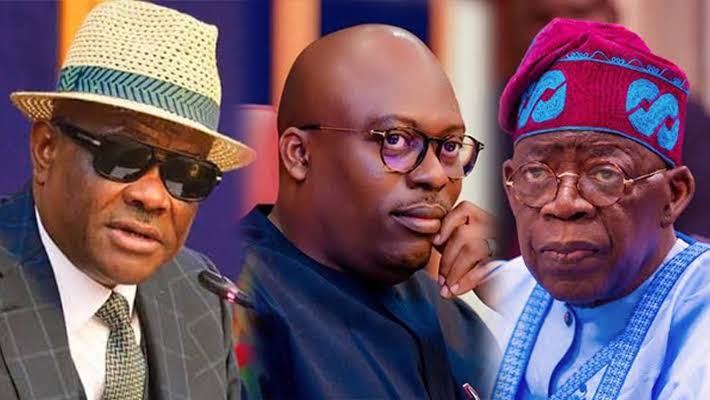
The Rivers State political arena continues to simmer with unresolved tensions as Governor Siminilayi Fubara and his estranged political mentor, Nyesom Wike, remain embroiled in a bitter feud despite attempts at reconciliation brokered by President Bola Ahmed Tinubu.
Efforts to quell the escalating discord between the two prominent figures have not yielded the anticipated truce.
While Governor Fubara has partially implemented resolutions from the peace talks, such as clearing arrears for pro-Wike House of Assembly members and acknowledging specific officials, critical aspects of the agreement remain unaddressed.
Fubara’s public appearances have been marked by veiled insinuations, subtly hinting at unresolved animosity towards Wike.
Speaking at a crossover church service at the Saint Paul Archdeaconry Parish in Opobo town on New Year’s Eve in Opobo/Nkoro Local Government Area, Fubara had said, “What they want is this red biro, but it is still with me. We are the winners because we are still signing with the red biro. As long as we are signing with the red biro, development will continue in Rivers State.”
During state functions, his emphasis on governance and development can be interpreted as indirect allusions to ongoing challenges posed by his predecessor.
Conversely, Wike’s discontent with the situation has been evident in his public statements, suggesting that Fubara failed to adhere to agreed directives from private discussions.
Implicitly criticizing Fubara’s leadership style, Wike highlighted the importance of effective crisis management in governance.
Speaking at a church event, Wike said the president should be thanked for intervening in the political crisis in Rivers, adding that he was not the one who invited him to help broker peace.
“You people said the president should intervene and you now said he did not have the constitutional power to do so,” he said.
He revealed that the president had earlier invited them privately and told them what to do, but alleged that despite agreeing to what the president said, the governor ended up not abiding by the directives; hence, the invitation to the state’s stakeholders, where the eight-point resolution was signed.
He indirectly referenced the governor, saying, “Part of governance is managing people. It is not only road contracts but the management of people.
“If you don’t know how to manage your crisis, then you don’t have business to be there. I have had my own crisis; I managed it and survived. If you have your own too, pray. If you can pray, go and meet pastors, they will intercede for you.”
The recent visit by Governor Fubara to his Bayelsa State counterpart, Douye Diri, under the guise of strengthening interstate relations and resolving property disputes, has raised eyebrows.
Analysts perceive the move as a potential strategy to forge alliances beyond the confines of Rivers State, possibly undermining Wike’s influence.
Despite attempts to portray an image of reconciliation, Daily Trust reports that both leaders’ actions and statements underscore the persistent tensions between Fubara and Wike.
The political landscape in Rivers State remains tense, with no signs of either party yielding ground in the ongoing power struggle.
